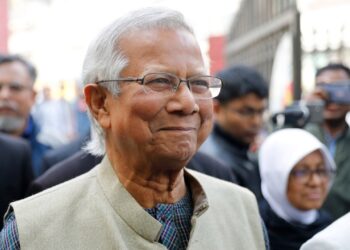[ad_1]
Governor says he has very good relations with the Chief Minister and the government
Governor says he has very good relations with the Chief Minister and the government
Various Bills passed by the Tamil Nadu Assembly to replace the Governor with the Chief Minister as the Chancellor of the State universities may hit a roadblock as they appear to be inconsistent with the University Grants Commission Act, 1956, Governor R.N. Ravi indicated on Friday.
At an informal interaction with senior journalists of select media organisations at the Raj Bhavan, he said the Bills are under examination and the view which is emerging is that these Bills do not seem consistent with the UGC Act, which has laid down standards and procedures for higher education institutions.
“The view which is emerging is that they look inconsistent with the UGC Act and Rules. If that comes out as a final view, then obviously it will be difficult for the Governor to give assent to it. But I am waiting for the [final] view,” he said.
The Governor said some of these have been conveyed to the government too.
Citing the case of the Siddha University Bill, Mr. Ravi said he had pointed out the inconsistencies even at the stage of granting consent to move the Bill. However, it came back in the same form and therefore “it has to pass the test”.
Pointing out that education was in the concurrent list, Mr. Ravi said that if there is incompatibility (with the Central rules) or a Bill is repugnant, it would be difficult to clear it.
Making it clear that as the constitutional head of the State, he was here to assist the State government and not to transgress boundaries, he reiterated his stand that governance is the responsibility of the government.
At the same time, he underlined that the Constitution mandates the Governor to exercise the options of assenting to a Bill, withholding assent or reserving it for the President. Unless it was a Money Bill, the Governor was not bound to grant automatic assent to it. All Bills are processed and there are instances in which he raises observations and depending on the response, “I go by what Constitution expects me to do.”
Mr. Ravi reiterated that Tamil Nadu is a progressive State and the frontrunner on various parameters such as human development, education, health, infrastructure, industry, and alleviation of poverty.
He rejected the view that he was speaking in support of Sanathana Dharma and voicing opinions that are in alignment with a particular political thought. “I express my views within the boundaries of Constitution…,” he said, arguing that there could be no universal consensus on any view.
The Governor said he had very good relation with the government. “They are very nice, very fine people, absolutely courteous. Whether it is Chief Minister or Ministers, I have absolutely no issues with them. I treat them as very good friends,” he said.
Mr. Ravi believed Chief Minister M.K. Stalin is a well-meaning person, who wishes to do good to the State and its people. “He is doing to the best of his ability, but he has to deliver it to the system,” he said, adding as and when he felt the need to share any concerns, he corresponded with Mr. Stalin. “I believe if I have a concern and go public with it, it doesn’t help; it only creates bitterness,” he said.
The Governor shared his concern about the falling standards of education and felt universities were functioning in silos, which was not healthy. “My priority has been to improve the standard of education in universities,” he said, reiterating his belief that the National Education Policy-2020 was a revolutionary document.
Law and order
While acknowledging that Tamil Nadu is known for maintaining good law and order and the State police are ranked among the most professional police organisations, he was worried about the violence against the Scheduled Castes, Adi Dravidas and women. “When I see the data, that is something that worries me. That impacts on social harmony and which is so crucial for our development and prosperity,” he said, expressing concern over the poor conviction rate in cases registered under the Protection of Civil Rights (PCR) Act.
Mr. Ravi said that irrespective of what others felt, he was conscious that he cannot let personal prejudices influence decisions. Irrespective of whichever State of which he was Governor, his role would have remained the same.
[ad_2]
















